Legal and Constitutional Implication of Edo State Governor’s Ban, Proscription of ‘Okaigheles’ Institution in Edo South Communities of Edo State
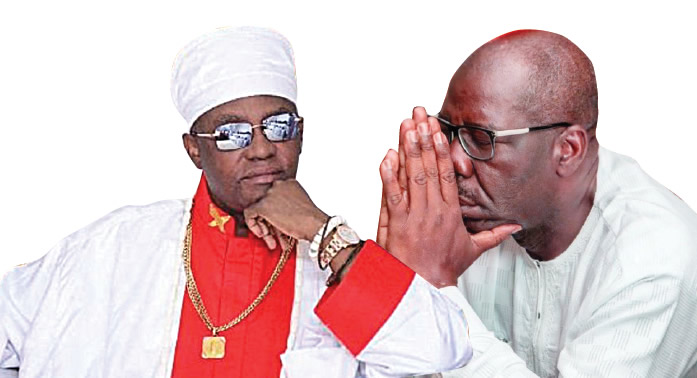
Oba Ewuare, Gov Obaseki
By Washington Osa Osifo, Ph.D
1.1 INTRODUCTION: It is no longer news that the Governor of Edo State vide a public pronouncement on the 3rd of June 2024 purported to ban/proscribe the activities of “Okaigheles” in the Edo South Communities of Edo State.
He claimed that the ‘’Okaigheles” have been linked to the upsurge of cult activities and cult related killings in Edo South metropolis, Benin-City.
He also immediately directed the Commissioner of Police, Edo State, to take steps to enforce the order. Not surprisingly, immediately thereafter, the Commissioner of Police announced his plans to arrest and prosecute anyone who assumes the status or parades himself as “Okaighele” of any community in Edo South of Edo State.
This immediately drew the irk of the “Okaigheles” in the said communities, who felt unduly targeted and they protested to the palace of His Royal Majesty, Oba Ewuare 11, Oba of Benin, who through a high palace chief, Chief Osaro Idah, reiterated that the title, status and the functions of “Okaigheles” being customary and bestowed on them by the palace, they remained in place.
However, the Edo State Government in a swift reaction through its Commissioner for Information and Communications, reiterated its ban on the “Okaigheles” and reinforced its desire to clamp down and deal decisively with any one claiming or purporting to act as “Okaighele” in any of the referenced communities above.
Accordingly, whilst this ding-dong affair over the propriety or otherwise of the purported ban/proscription of the “Okaigheles” rages on, it is my desire in this paper to examine the legal and constitutional implication of this ban/proscription.
1.2 The Legality/Constiutionality Of The Ban/Proscription: Against the background of the facts surrounding the sudden ban/proscription by the Edo State Governor, it is my considered opinion that it would have been tidier if the Governor limited the ban/proscription to specific and identified ‘Okaigheles’ who were evidently linked or had been investigated by security and law enforcement agencies over cultism and cult related activities.
It is my view that this blanket ban on all ‘’Okaigheles’ without evidence of their direct membership and/or involvement in cultism and cult related killings in the State is patently unlawful and unconstitutional.
I believe and so do reasonable minds, that any attempt to arrest, detain and prosecute any of the ‘’Okaigheles’ that insist on retaining their title, status as well as performing their roles in the respective communities, would amount to infringement on their fundamental rights to personal liberty, fair hearing, the right to the freedom of assembly and association and the right to the freedom of movement as encapsulated in sections 35, 36, 40 and 41 of the Constitution of the Federal Republic of Nigeria, 1999.
I also believe that these basic rights of the ”Okaigheles’ can not be tampered with or deprived of them, except in accordance with the express provisos created in the same Constitution by section 45 thereof.
It is equally instructive to note that the general derogatory provisions in section 45 of the Constitution are inapplicable to the fundamental rights to personal liberty and the right to fair hearing.
Accordingly, the governor is bound by these clear and unambiguous provisions of the Constitution.
It is clear that branding the ”Okaigheles’ as cultists or having a hand in the upsurge in cult related killings in the State without hearing from them and without any of their alleged membership and/or sponsorship of the cult groups in the state amounts to a denial of their fundamental right to fair hearing.
Similarly, banning/proscribing their status and office as ‘Okaigheles’ of their respective communities without giving them the opportunity of clearing their names from the alleged involvement/links to cultism in the state, is equally a denial of their right to fair hearing.
It is settled law that before a decision affecting a person’s right, privileges, and office is taken, he or she ought to be given a fair hearing.
At common law and under our extant Constitution, there are twin pillars of natural justice and the right to fair hearing, i.e “Nemo Judex In Casa sua (You can’t be Judge in your own cause” and ‘Audi Alterem partem” (Hear the other side).
Accordingly, the governor, being the same person that accused the ‘Okaigheles’ as cultists and also proceeding to ban/proscribe them, certainly became the accuser and the judge simultaneously. This is unacceptable, legally and constitutionally.
What is more? Making his (Governor Godwin Obaseki) “finding of fact” about their membership or links with cults in Edo State and proceeding to punish them by proscribing their office and status amounts to not hearing the other side. This is gross infraction on their right to fair hearing.
The legal, reasonable and appropriate action to deploy would have been to set up either a Judicial or an Administrative Panel of Inquiry to investigate the roles of these ‘Okaigheles’ and make one of the terms of reference of the investigative panel, the determination or the degree of involvement (if any) of these ‘Okaigheles’ in cultism in Edo State.
He would have allowed the Panel to suggest the penalty/punishment to be meted on these ‘Okaigheles’, if the Panel indicts them.
Why the hurry to bury them? It is my humble view that the Constitution is supreme and ought to be obeyed by the Governor in his words and actions.
The Courts have repeatedly reiterated the supremacy of the Constitution of individuals and institutions thus: In IBRAHIM v. NIGERIA ARMY (2015) LPELR-24596(CA), the Court of Appeal held as follows:
“The Constitution of the Federal Republic of Nigeria, 1999 as amended came into force on 29th May, 1999. Section 1(1) of the Constitution entrenched the supremacy of the Constitution by stating that ‘This Constitution is supreme and its provisions shall have binding force on all authorities and persons throughout the Federal Republic of Nigeria’. The binding force of the Constitution extends to the Armed Forces and the appellant”.
Similarly, the Court of Appeal also held in CHEVRON (NIG) LTD v. IMO STATE HOUSE OF ASSEMBLY & ORS (2016) LPELR-41563(CA) that:
“There is no doubt as the Learned Senior Counsel for the Appellant has submitted that the Constitution of the Federal Republic is the ground norm and fundamental law of the Land. By Section 1(1) of the Constitution, the Supremacy of the Constitution has been made sacrosanct and binding on all authorities and persons throughout Nigeria…”
It is also contended that the threats to arrest, detain and prosecute the said ‘Okaigheles’ if they continue to assume the status and perform the functions of the office amounts to an attempt to tamper with, fetter and deprive them of their fundamental rights to personal liberty.
Similarly, the Court have repeatedly reiterated the imperative of respecting and protecting the citizens’ right to personal liberty thus: In EFCC v. Diamond Bank Plc. [2018] 8 NWLR (pt. 1620) S. C., ratio 9 @ 69 the Supreme Court held that:
“By section 35(1) of the Constitution of the Federal Republic of Nigeria 1999 every person shall be entitled to his personal liberty and no person shall be deprived of such liberty save in the cases listed in the section and in accordance with procedure permitted by law…”
I am further convinced that the attempts to prevent the ‘Okaigheles’ who are essentially members of “Age Grades” in their respective communities from participation as member of these “age grade” associations and performing their functions as “Heads” (Okaigheles) of these associations, amount to an attempt to deprive them of their fundamental right to the freedom of assembly and association, guaranteed by section 40 of the Constitution.
In the same vein, in reiterating the constitutional nature of the right to assemble freely, the Supreme Court held in TARABA STATE GOVERNMENT & ANOR v. SHAKU & ORS (2019) LPELR-48130(CA) that:
“The right to assemble or the freedom of associating with other persons is provided in Section 40 of the Constitution under the following conditions: – “40.
Every person shall be entitled to assemble freely and associate with other persons, and in particular he may form or belong to any political party, trade union or any other association for the protection of his interests: Provided that the provisions of this section shall not derogate from the powers conferred by this Constitution on the Independent National Electoral Commission with respect to political parties to which that Commission does not accord recognition.” Per JOSEPH TINE TUR, JCA (Pp. 137 – 137 Paras B-E).
I also believe that these roles/functions assigned to the ‘Okaigheles’ by their respective communities, require their mobility within and around their respective communities.
Therefore, if the Governor is allowed to unilaterally ban/proscribe their activities as ‘Okaigheles’, it would amount to a denial/deprivation of their right to freedom of movement. In EZIEGBO & ANOR v. ASCO INVESTMENT LTD & ANOR (2022) LPELR-56864(SC), the apex Court held inter alia:
“Section 41 provides for and guarantees the freedom of movement throughout Nigeria for every citizen of Nigeria who shall not be expelled from or refused entry into Nigeria, except as may be provided by any law which is reasonably justifiable in a democratic society.
Here again, the Constitutional right of freedom of movement within, entrance into or expulsion from Nigeria, is not absolute since situations or circumstances are recognized and provided for in which it could legally and lawfully be curtailed, interfered with or limited so long as it is done in strict compliance with the law.
The primary aim of the section is to generally protect persons from abuse of power; official and individual. see Onwo v. Oko (1996) 6 NWLR (pt. 456) 587.” Per MOHAMMED LAWAL GARBA, JSC (Pp. 7 – 8 Paras F – C)
Although, the Governor and his sympathizers may wish to argue that the ban/proscription of the ‘Okaigheles’ was in the best interest of security and peace in the State, good as that may sound, it is hereby countered that no matter the altruistic intention of the Governor, it must be done in accordance with due process and in accordance with the specific provisions of the Constitution.
It is clear that as at now no executive bill has been sponsored and assented to by the Governor to enable him take advantage of the provisos in sections 35 and 36 of the Constitution on the rights to fair hearing and the right to personal liberty.
Similarly, no law has been enacted by the Edo State House of Assembly and assented to by the Governor in the interest of public safety, public health and security to ban/proscribe the office of ‘Okaigheles’ in Edo South of Edo State.
Therefore, the provisions of sections 40 and 41 of the Constitution guaranteeing the “Okaigheles” rights to the freedom of assembly and association as well as the freedom of movement, remain inviolate.
He (Governor) in good conscience, can not on the basis of his verbal pronouncement take umbrage under section 45 of the Constitution.
It is equally clear that at present, the only piece of legislation that defines cultism and prohibits cultism in Edo State is the Edo State Anti-Cultism Law of 2000.
It is humbly submitted that cursory appraisal of the provisions of this Law will reveal that its scope is limited to incidents of cultism amongst students in tertiary institutions and/or public officers in the State.
It is therefore clear that the “Okaigheles” who are neither students in tertiary institutions or public officers are not within the ambit of this Law.
Accordingly, In JAMES v.GOV. OF EDO STATE & ORS (2021) LPELR-54203(CA), where the question was whether the Appellant’s right to freedom of movement can be curtailed by a verbal order or a written executive order made by a Governor issued pursuant to or by virtue of an existing law which is justifiable under Section 41 (2) of the Constitution of Nigeria, 1999 (as amended).
In resolving this question, the Court held inter alia:
By Section 41 (1) and (2) of the Constitution of the Federal Republic of Nigeria, 1999 (as amended), it is provided thus: Subsection 1: “Every citizen of Nigeria is entitled to move freely throughout Nigeria and to reside in any part thereof, and no citizen of Nigeria shall be expelled from Nigeria or refused entry thereto or exit there from. Subsection (2): “Nothing in Subsection (1) of this Section shall invalidate any law that is reasonably justifiable in a democratic society- a) Imposing restrictions on the residence or movement of any person who has committed or is reasonably suspected to have committed a criminal offence in order to prevent him from leaving Nigeria; or b) Providing for the removal of any person from Nigeria to any other Country to – i. Be tried outside Nigeria for any criminal offence, or ii. Undergo imprisonment outside Nigeria in execution of the sentence of a Court of law in respect of a criminal offence of which he has been found guilty: Provided that there is reciprocal agreement between Nigeria and such other Country in relation to such matter.”
Now, looking at the succinct provisions of Section 41 (1) and (2) of the Constitution of Nigeria, 1999 (as amended), what would be reasonably justified or justifiable in my view is not a verbal order or even at best a written executive order made by a Governor but a written law made by the Legislature.
Thus, neither a verbal order nor even a written executive order made by a Governor can on its own be justified or justifiable under Section 41 (2) of the Constitution of Nigeria, 1999 (as amended), unless such a verbal order or written executive order was made or issued under or pursuant to or by virtue of an existing law which is justified or justifiable under Section 41 (2) of the Constitution of Nigeria, 1999 (as amended).
In other words, neither a ‘Verbal Order’ nor ‘Written Executive Order’ of a Governor, or the Executive Arm of Government at whatever level of governance in Nigeria for that matter, restricting movement through the banning of the use of motorcycle for movement can on its own be justified or justifiable by reference to Section 41 (2) of the Constitution of Nigeria, 1999 (as amended), if it was not made or issued pursuant to an existing law which is justified or justifiable under Section 41 (2) of the Constitution of Nigeria, 1999 (as amended).”
1.3 CONCLUSION: It is therefore evident that on the basis of the law and the Constitution, the actions and steps taken so far and those to be taken subsequently by the Governor in furtherance of his ban/proscription of :”Okaigheles” in Edo South of Edo State are unlawful and Unconstitutional.
He is therefore advised to adhere to the rule of law and submit himself to the absolute supremacy of the 1999 Constitution and retrace his steps.
He is advised to also rein in the Commissioner of Police and other agents of the State that he may have unleashed on the ‘Okaigheles’ in a bid to enforce his ipse dixit.
He is also advised to think outside the box in his bid to stem the ugly tide of cultism and cult related killings in the state by deploring the huge security votes he gets monthly on intelligence gathering and covert operations by the security agencies in the State.
This can be done in order to fish out the real culprits, i.e., the real members and / or sponsors of these killer cult groups in the state.
If for any reason any of the “Okaigheles” are directly fingered in these criminal activities , they should be dealt with like ordinary citizen offenders. What is distasteful and unacceptable is his hasty conclusion and generalization or efforts in scape-goatism and undue “gas lighting” of the ‘Okaigheles’ in Edo South of Edo State.
Washington Osa Osifo, Ph.D write from Benin City, Edo State



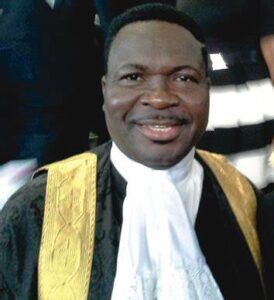
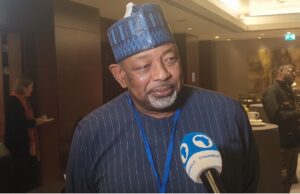
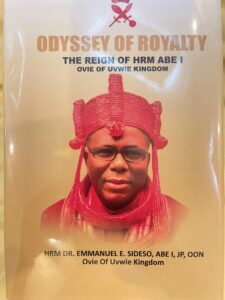
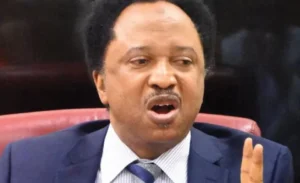
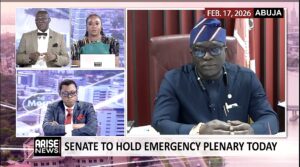
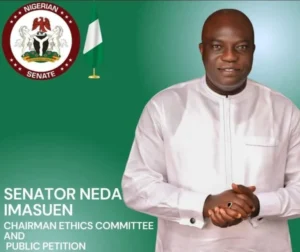
1 thought on “Legal and Constitutional Implication of Edo State Governor’s Ban, Proscription of ‘Okaigheles’ Institution in Edo South Communities of Edo State”